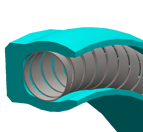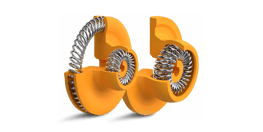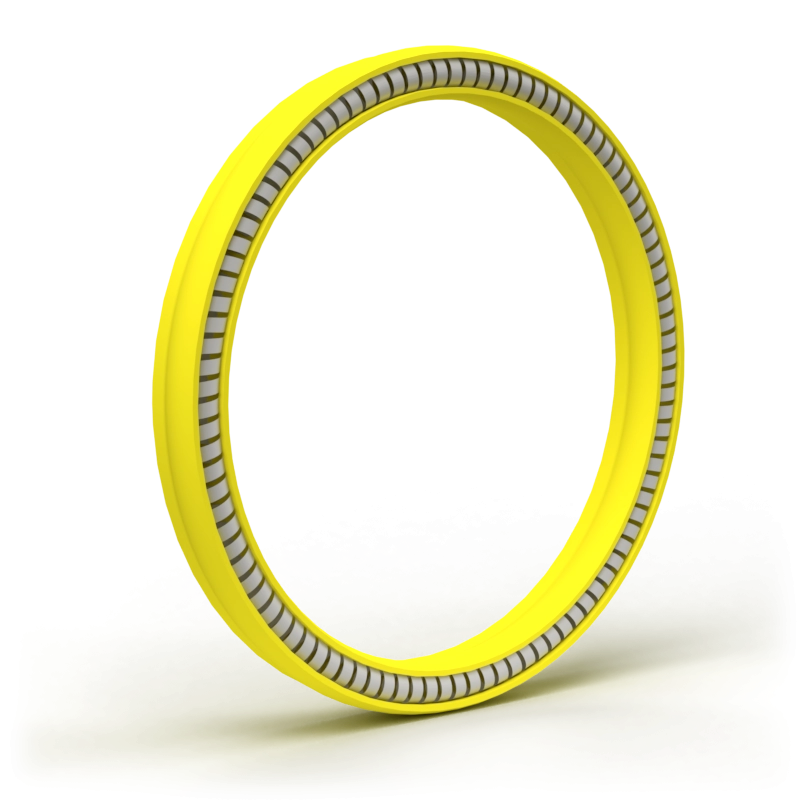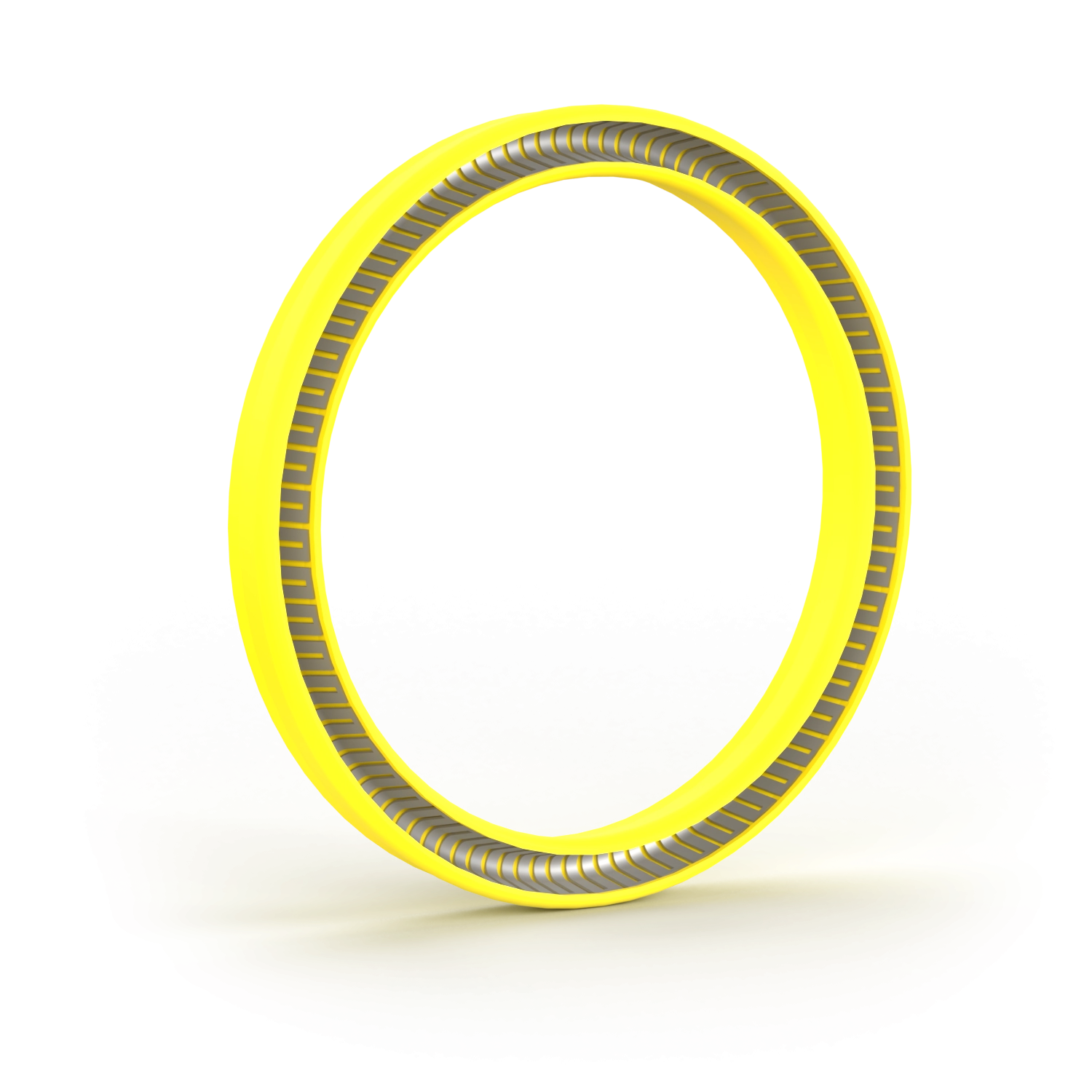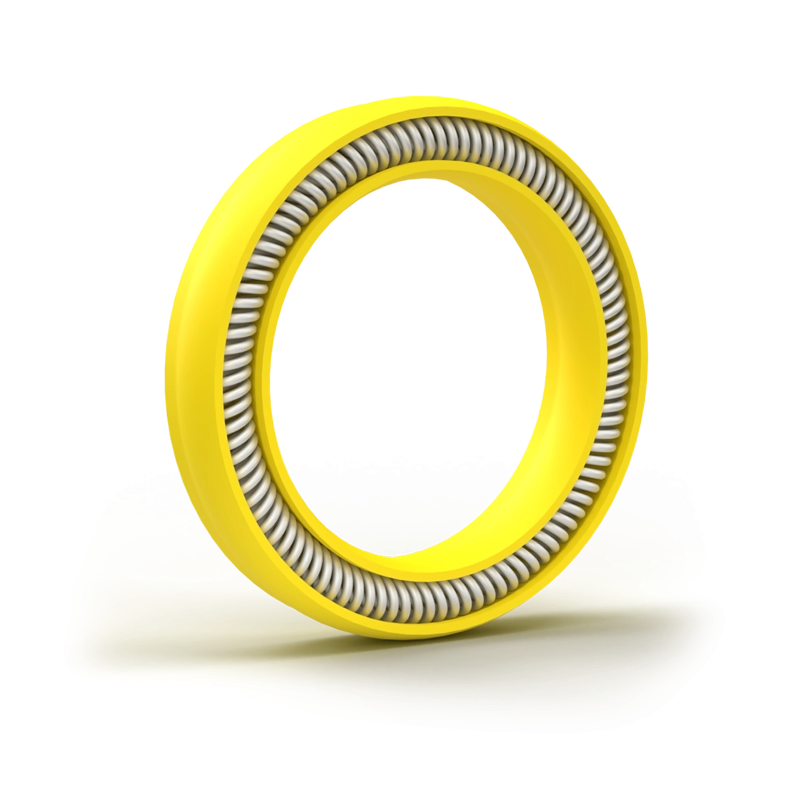PCTI Design Team
RECIPROCATING SEALS
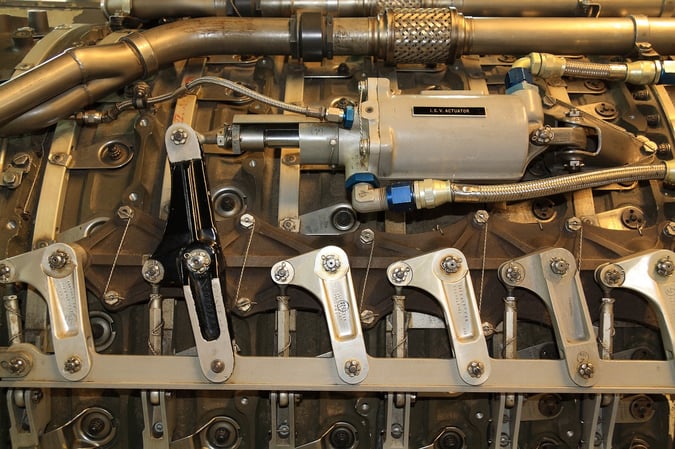
What are Reciprocating Seals?
Reciprocating seals are mechanical components used to seal the gap between two moving parts, typically in a piston-cylinder arrangement. These seals prevent the escape of fluid or gas and help maintain pressure within the system. Reciprocating seals are commonly referred to rod and piston seals. They are very common and used in many applications and industries from industrial to aerospace and medical. Most piston or plunger spring energized seals utilize an axial reciprocating motion.
How do Reciprocating Seals Work?
Reciprocating seals work by creating a tight seal between the piston and cylinder wall during the piston's reciprocating motion. The piston mounted seal is mounted on the piston and the dynamic interface is between the piston and cylinder wall. As the piston moves back and forth, the seal prevents fluid or gas from escaping. Some applications require the seal to maintain pressure as the piston moves creating higher pressure.
The rod seal is mounted in the housing and the dynamic interface is between the rod and housing. The rod seal's primary purpose is to prevent the internal media from escaping. In recent years, some have converted to calling rod seals as “housing mounted” seals. New engineers who may be unfamiliar with hydraulics, can sometimes have a difficult time with the rod seal nomenclature.
Benefits of Reciprocating Seals
Some key benefits of reciprocating seals include:
Protects Bearing or Motor
Tolerant to a Wide Range of Temperatures
Chemical Resistant
Great for High-Speed Applications
Reduces Wear
Longer Seal Service Life
Reciprocating Seal Selection Considerations
When selecting and designing a reciprocating seal for its intended application, consider the following:
-
Dynamic Surface Finish Interface
-
Stroke Length and Speed
-
Dynamic Material Interface
-
Installation - Solid, Stepped or 2-Piece Gland
-
Friction (breakout and running)
-
Temperature (operating, minimum and maximum)
-
Media/Fluid - Gaseous, Liquid or Paste
-
Pressure (operating, minimum and maximum)
-
Duty Cycle
Polymer Concept's Reciprocating Seal's:
Reciprocating Seal Applications
Reciprocating seals are an ideal choice for sealing applications across a variety of industries, including:
Industrial
- Adhesive Dispensing Equipment
- Compressors
- Cryogenic Systems
- Food Processing Pumps
- Fluid Transfer Systems
- Insulators
- Mixers
- Robotics
- Vacuum Pumps
Medical Device & Life Sciences
- HPLC/UPLC
- Surgical Tools
- Autoclave Equipment
- Instrumentation
- Hematology Analyzers
- Oxygen Concentrators
- Pharmaceutical Equipment
Aerospace
- Actuators
- Gearboxes
- Turbine Engines
- Landing Gears
- Fuel Systems
- APUs
- Cryogenic Valves
Oil & Gas
- Surface Drilling Equipment
- Downhole Tools
- Pumps and Valves
- Subsea and Deepwater Equipment
- HPHT Environments
- LWD/MWD Tools
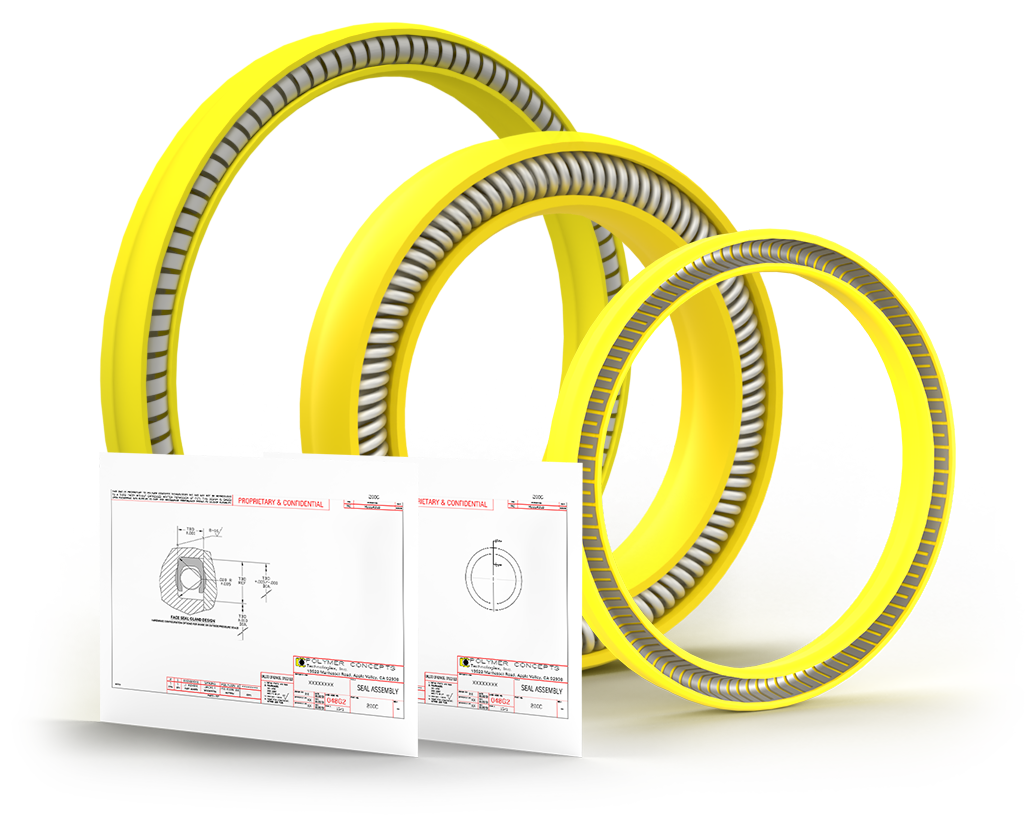
Ready to Work With the Industry-Leading Reciprocating Seal Manufacturer?
Your Polymer Concepts team is here to help.
Whether you have a sales inquiry, need some customer support, would like engineering feedback, or have something to share with marketing, Polymer Concepts is here for you.
Contact us through the web form and we will happily respond to your questions or comments. You are also welcome to call us for a quicker response at 760.240.4999. We look forward to hearing from you!

